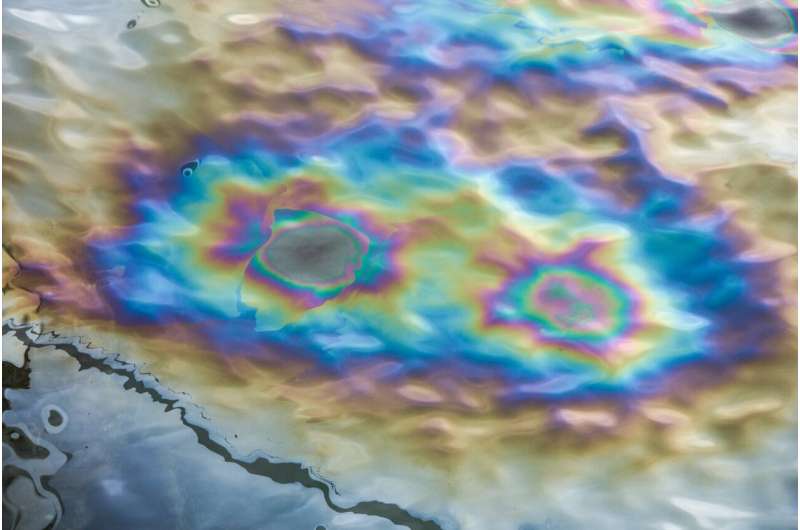Credit: Pixabay/CC0 Public Domain
Lubricating oils deteriorate and oxidize with use as well as accumulating particles from the engines and other machinery in which they are used. Ultimately, their effectiveness worsens and they begin to damage the components they were designed to protect they have to be replaced. Disposing of waste engine oil thus becomes a significant environmental concern. Waste lubricant cannot be simply disposed of as it is highly toxic to ecosystems and harmful to the environment and human health.
Writing in the International Journal of Global Warming, a team from China has turned to a nineteenth century discovery—supercritical fluids—to help them clean up waste oil and remove contaminants efficiently and effectively.
Supercritical fluids are essentially substances held at a temperature above their boiling point but under sufficiently high pressure that they do not enter the gas phase. Under these conditions water, carbon dioxide, and other substances are in a hybrid state between liquid and gas and have many properties that are very different from the substance in its commonly observed state at ambient temperature and pressure.
For instance, supercritical fluids (SCFs) can dissolve many diverse substances that are not normally considered soluble in the "normal" gas or liquid. They also have the advantage of very rapidly reverting to their normal state once the pressure and temperature are reduced. This phenomenon allows a substance such as supercritical carbon dioxide to be used to dissolve a range of compounds so that a dissolved compound might then be separated from a complex mixture. Once the pressure is released the carbon dioxide boils off leaving behind the separated substance.
More information: Xin Yang et al. Measurement and modeling of the solubility of dodecylcyclohexane in supercritical carbon dioxide, International Journal of Global Warming (2020). DOI: 10.1504/IJGW.2020.107866
Provided by Inderscience
























